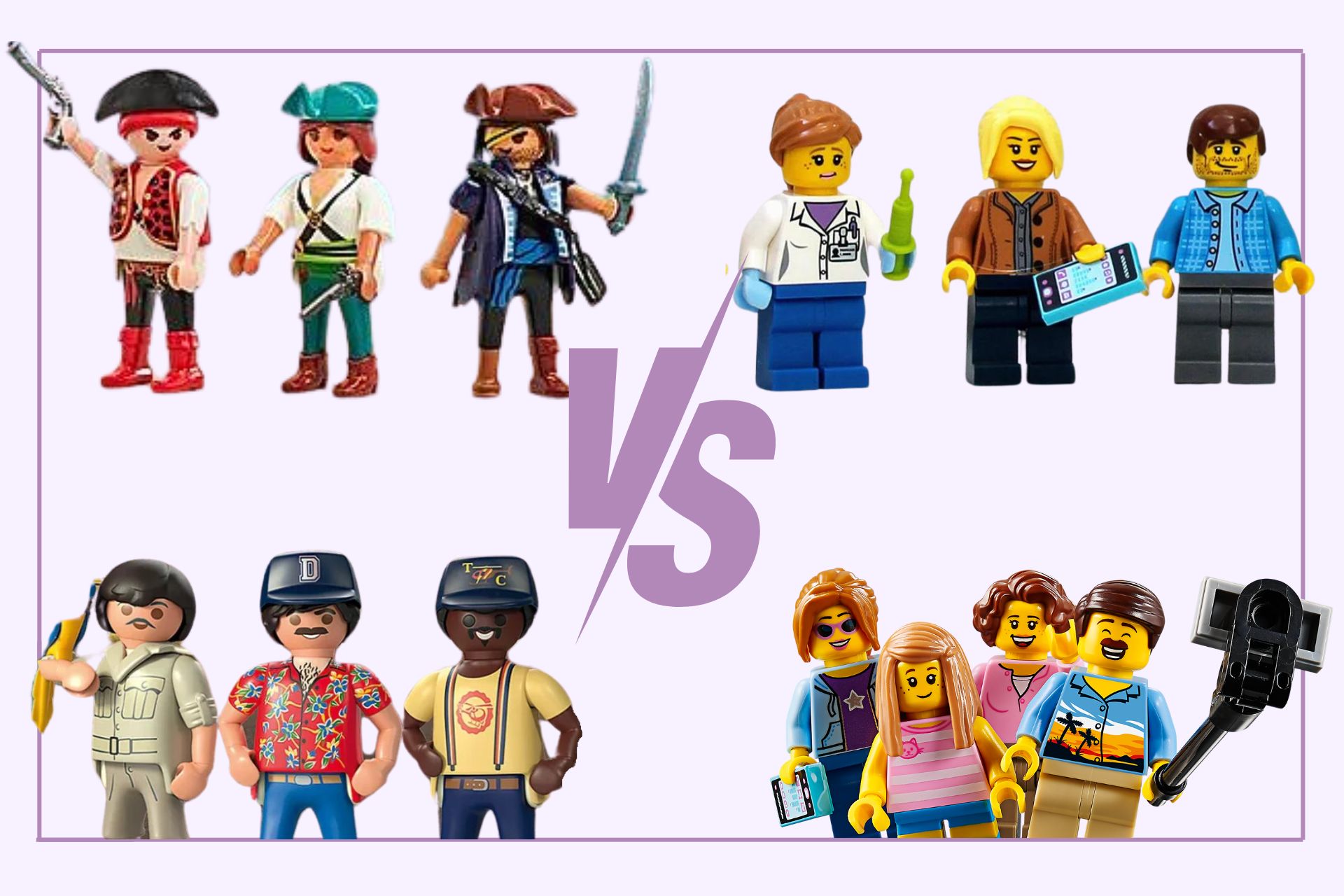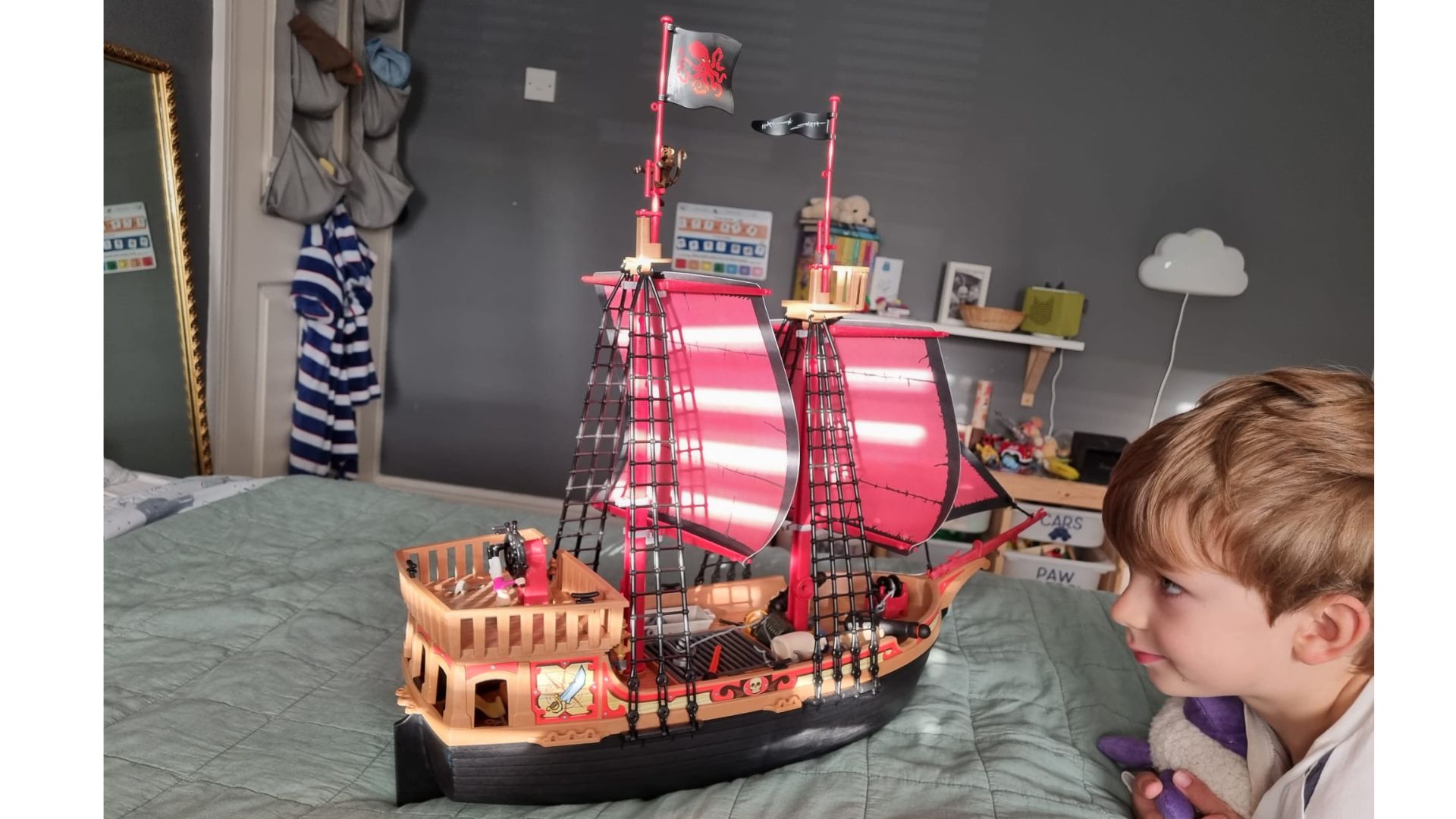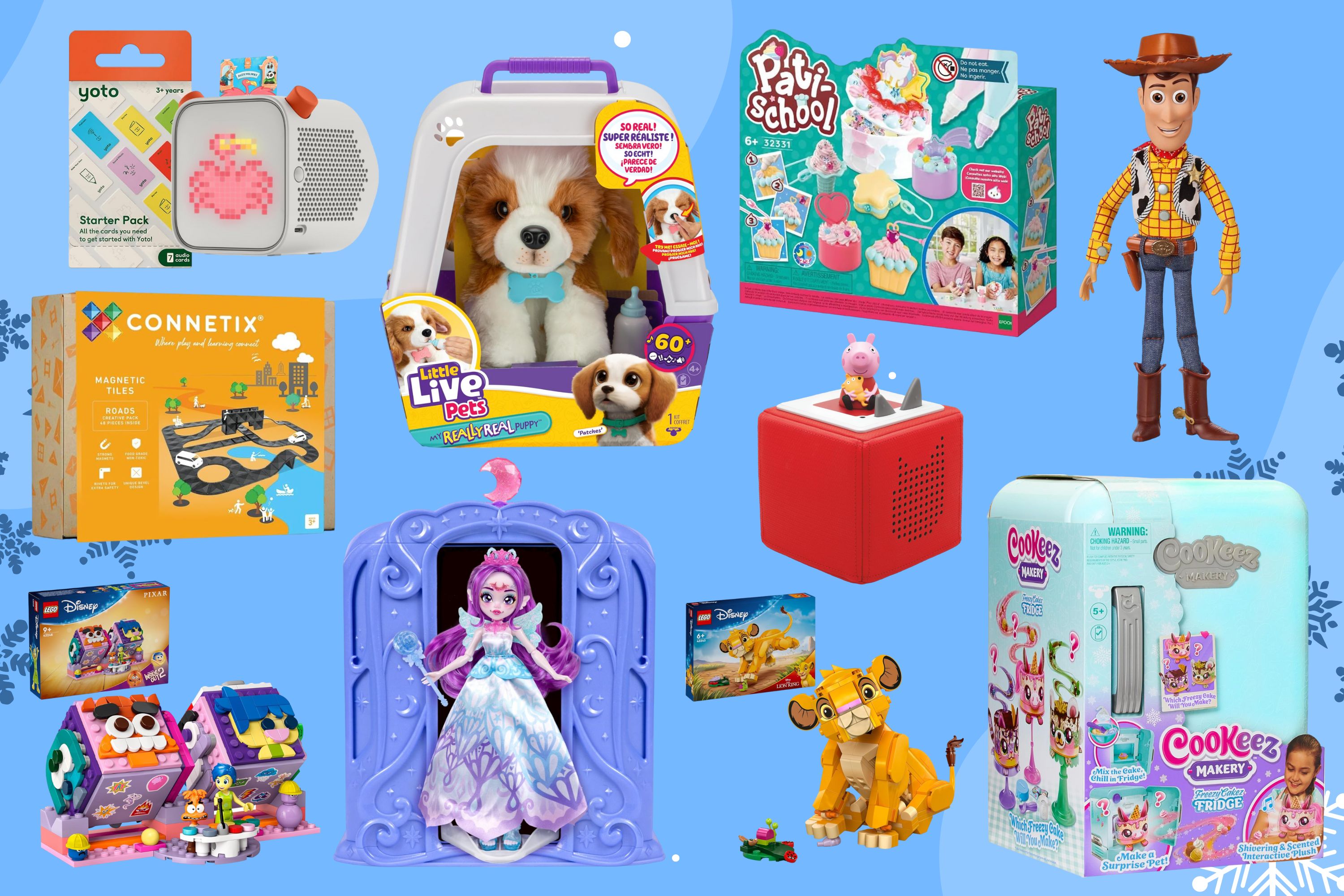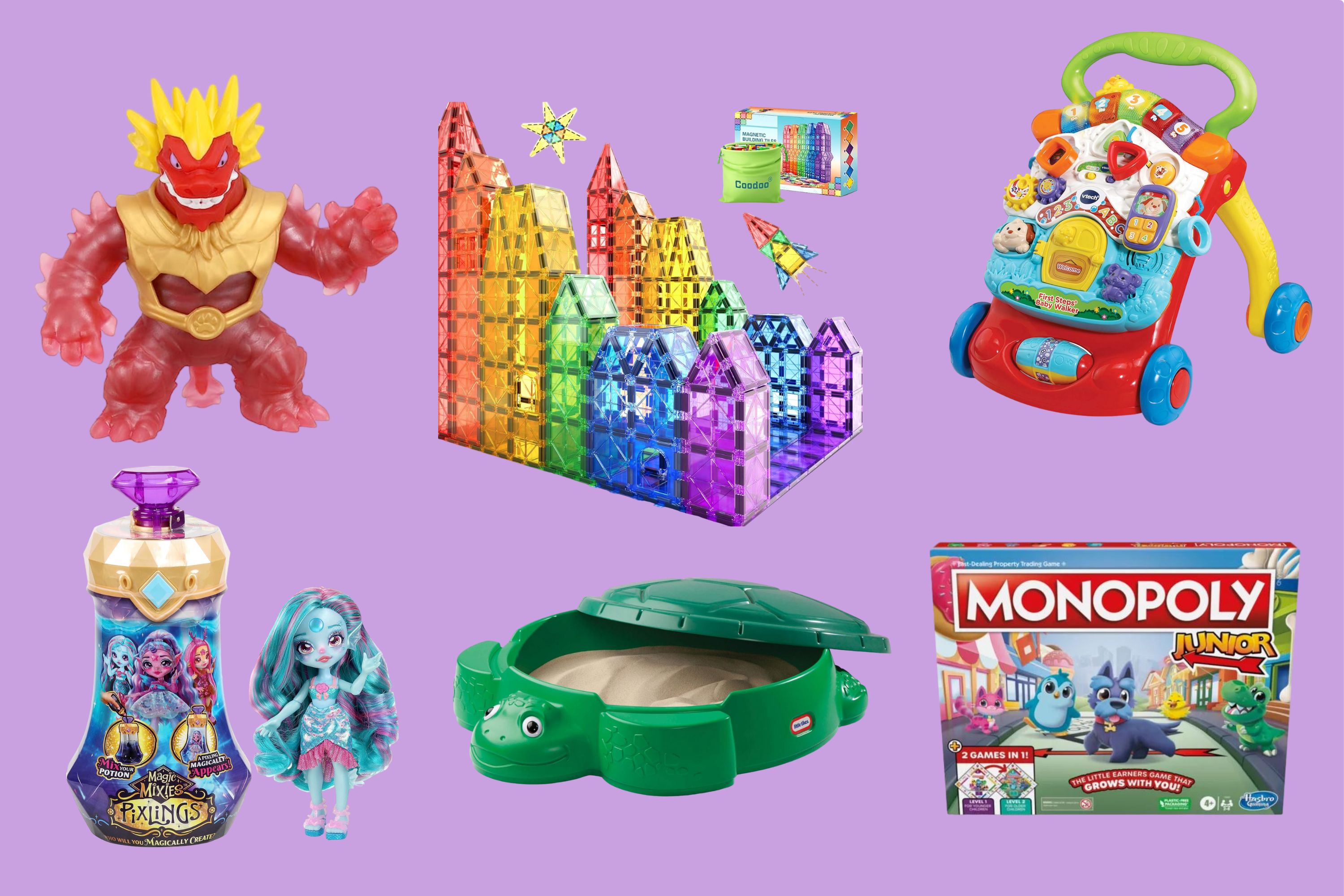LEGO vs Playmobil – my kid plays with both and here's what's really worth your money and why
LEGO vs Playmobil – here's what's worth buying and why

Daniella Gray
I can't be the only parent to pit LEGO vs Playmobil against each other, they're both much-loved construction classics – It's one of the main reasons I wrote this article to help parents who are pondering the same, and which is the best to buy and why.
Here at GoodtoKnow we take parent research very seriously, we know that parents are time-poor so we like to answer all the questions on potential purchases before you've had a chance to think of them. LEGO and Playmobil both fall into the best kids toys of 2024 roundup that's for sure, both keep kids engaged and creating so it makes sense that you've landed on this article, just so you know we've also done a lot of comparing and contrasting of LEGO Duplo Vs LEGO, Nintendo Switch Vs Oled and Yoto Vs Toni so lots of pre-buy reading for you.)
When it comes to LEGO vs Playmobil though, both have their benefits - and there's a lot to think about. So we - as in myself and my five-year-old, Ted - have done the hard work for you and we're looking into LEGO and Playmobil, two steadfasts in toyboxes around the world. But kids usually prefer one to the other, at least that's what I found with my (not at all scientific) parenting poll of approximately 14 parents at the school gate.
We compare the average cost for both the Classic LEGO set, for sale at £35.49 on Amazon
and Playmobil Pirate Ship set, for sale at £37.99 on Amazon, the benefits and why your kid might prefer one and not the other. So, strap in, and here goes...
In a nutshell
Both offer so many benefits for kids, but if you're buying one or the other, bear in mind that LEGO is great for kids who like building, demolishing and rebuilding, Playmobil is better suited to those who love roleplay and 'let's pretend'. Read on to see which one my five-year-old preferred...
LEGO Vs Playmobil
At first glance, LEGO and Playmobil could be mistaken for the same thing, they're both toys that use imagination and are built and played with, with characters. But Ted and I look a little closer. Disclaimer: It took Ted until he was five years old to care about playing with either of these toys and even now he has both (and has helped me review them), he still prefers to play with his Go Jetter toys above all else.
LEGO Vs Playmobil: a brief history
LEGO is predominantly brick building and the name comes from the Danish 'leg godt' which means to 'play well' - we have loads more fascinating facts on when LEGO was invented. LEGO started in the workshop of a Danish carpenter in 1932. By 1949, the famous plastic interlocking building bricks replaced wooden toys.
Considered the best construction toy, LEGO is pretty big business. Eight years ago the company reached a personal best with sales jumping 25% to $5.3 billion and reaching 100 million children worldwide.
GoodtoKnow Newsletter
Parenting advice, hot topics, best buys and family finance tips delivered straight to your inbox.
Playmobil has been about since 1975 - that's 48 years - and has more of a timeless vibe, staying true to its brand without leaning on external trends. They have less focus on brand licenses and focussed their efforts instead on positioning Playmobil as the toy that's passed on from one generation to the next - they hit nostalgia. Hans Beck the German inventor is considered the 'father of Playmobil' - one of the most popular toys in the world.

LEGO Vs Playmobil - the cost and what's available
LEGO: The range is so huge and varied - from DUPLO to Classic, Disney to Marvel and Harry Potter - that going into a store knowing what you want will save you time and money. We lost two hours of our life at the store in Bluewater after we made the mistake of letting Ted fill a cup with options from the Pick and Build wall - the choices were almost too much (they sell teeny LEGO pretzels for crying out loud).
Cost ranges from £7.99 for a LEGO base up to almost £400 for the fancy pants branded life-size (almost) sets, with the most expensive thing ever on sale for over a grand; the LEGO Star Wars Imperial Star Destroyer, £1079.99, at Amazon – and is so rare, it's now a collector's item.
Playmobil: By comparison, Playmobil is a calmer experience and feels much more streamlined with its offerings. Prices start at £2 for a character and go up to around £150 for a set, with the most expensive being the USS Enterprise Ship, £314.99, Playmobil.co.uk.
The sets are wide and varied, from the classic City Action (with emergency vehicles) to the brand-licensed characters like Scooby Doo, Back to the Future and Winnie the Pooh. Each theme hits a phase your child may be going through from space to dinos and pirates to ponies - they cover a lot.
Ted reviewed the Skull Pirate Ship (which is no longer available on Playmobil.co.uk but you can get it with a 20% discount at £39.99, Amazon.co.uk) and putting it together was construction, Ted loved helping to build it with all its little accessories, like the parrot, golden chalice and treasure chest. The attention to detail was outstanding, the grappling hook and anchor got a huge thumbs-up from this kid.
LEGO Vs Playmobil: Our verdict
There's no 'right answer' here. I think LEGO and Playmobil offer two very different forms of play, and deciding which is best rests on one thing.... who your kid is and what they're interested in.
With Playmobil, children get the chance to imagine themselves in different roles and create new adventures using miniature models of working professionals, popular characters, and themed scenarios. Playmobil also clearly upholds the importance of holistic development, focussing on role-playing and touching on various developments that are crucial for children. The main benefits are;
- Social
- Storytelling
- Cognitive
- Emotional
- Motor skills development
While LEGO tends to be more about construction, demolition and reconstruction - as well as really cool movies. There is of course a lot of role-play and imagination with the finished product, but it's not as focused on storytelling as Playmobil - though it does have mega cool points with the strong brand licensing with characters like Batman, Harry Potter and Star Wars. Other benefits are;
- Problem-solving skills
- Improved eye/hand coordination
- Perseverance
- Patience
- Development of spatial skills
- Enhanced fine motor skills
Cost-wise, LEGO and Playmobil are more or less on par, (although just wait until you check out the price of the most expensive LEGO set) so the only thing that parents need to consider is which one will give the best return on investment when it comes to engaging and entertaining their kids. If your little one has a flair for the creative and storytelling and loves to re-enact and role-play, then Playmobil might be their bag.
However, if they love building, adding, demolishing and rebuilding - sometimes with instructions, sometimes not, then LEGO is the one for you.
I honestly thought my son would be a LEGO fan, but of the two he's leaned a lot more towards the pirate ship - even involved his Ewan The Dream Sheep (from his baby days) and Go Jetter toys, merging worlds and stories. I've never seen him play like this with LEGO building.
Finding out why LEGO is great for development can only be a good thing but if your house is overflowing with the stuff, check out how to recycle LEGO so that another family can enjoy it.
Stephanie has been a journalist since 2008, she is a true dynamo in the world of women's lifestyle and family content. From child development and psychology to delicious recipes, interior inspiration, and fun-packed kids' activities, she covers it all with flair. Whether it's the emotional journey of matrescence, the mental juggling act of being the default parent, or breaking the cycle of parenting patterns, Stephanie knows it inside out backed by her studies in child psychology. Stephanie lives in Kent with her husband and son, Ted. Just keeping on top of school emails/fundraisers/non-uniform days/packed lunches is her second full-time job.
- Daniella GrayFamily News & Wellbeing Writer
-
 Best toys for 6 year olds 2025: 45 age-appropriate gift ideas from just £6.99
Best toys for 6 year olds 2025: 45 age-appropriate gift ideas from just £6.99From Barbie to slime, and from educational to creative, these top toys for six-year-olds are sure to be a big hit
By Sarah Handley Published
-
 18 top Christmas toys 2025 - including LEGO, Tonies, Stitch and more
18 top Christmas toys 2025 - including LEGO, Tonies, Stitch and moreThese are our expert-picked top Christmas toys for 2025, based on our in-house tests
By Sarah Handley Published
-
 Last chance to shop the best Prime Day deals for university students, chosen by a fresher's mum
Last chance to shop the best Prime Day deals for university students, chosen by a fresher's mumStudents, assemble! Get your digs kitted out without spending all your finance cheque
By Heidi Scrimgeour Published
-
 It's not too late! Prime Day ends tonight but these Cricut deals could have you crafting by Christmas
It's not too late! Prime Day ends tonight but these Cricut deals could have you crafting by ChristmasFancy yourself as a crafting queen? These Cricut deals could make your dreams come true
By Heidi Scrimgeour Published
-
 I'm a mum of three and these Amazon subscriptions have eased my mental load
I'm a mum of three and these Amazon subscriptions have eased my mental loadSick of texting 'cat food' to your other half? This is your sign to set up Subscribe & Save
By Heidi Scrimgeour Published
-
 I'm a toy tester and these 35 Amazon Prime Day toy deals are still available, but not for long
I'm a toy tester and these 35 Amazon Prime Day toy deals are still available, but not for longThese Amazon Prime Day toy deals are still live if you want to grab a last-minute bargain
By Sarah Handley Last updated
-
 The Elvie wearable breast pump is the smallest and quietest on the market - don't miss this exclusive discount offer
The Elvie wearable breast pump is the smallest and quietest on the market - don't miss this exclusive discount offerElvie, the female-first tech firm, has slashed the price of its hero products exclusively for Amazon Prime Day
By Heidi Scrimgeour Published
-
 Top 4 things tired mums do and what they buy on Amazon (trust me I’m a tired mum)
Top 4 things tired mums do and what they buy on Amazon (trust me I’m a tired mum)Spoiler: none are ‘take a bath’
By Stephanie Lowe Published